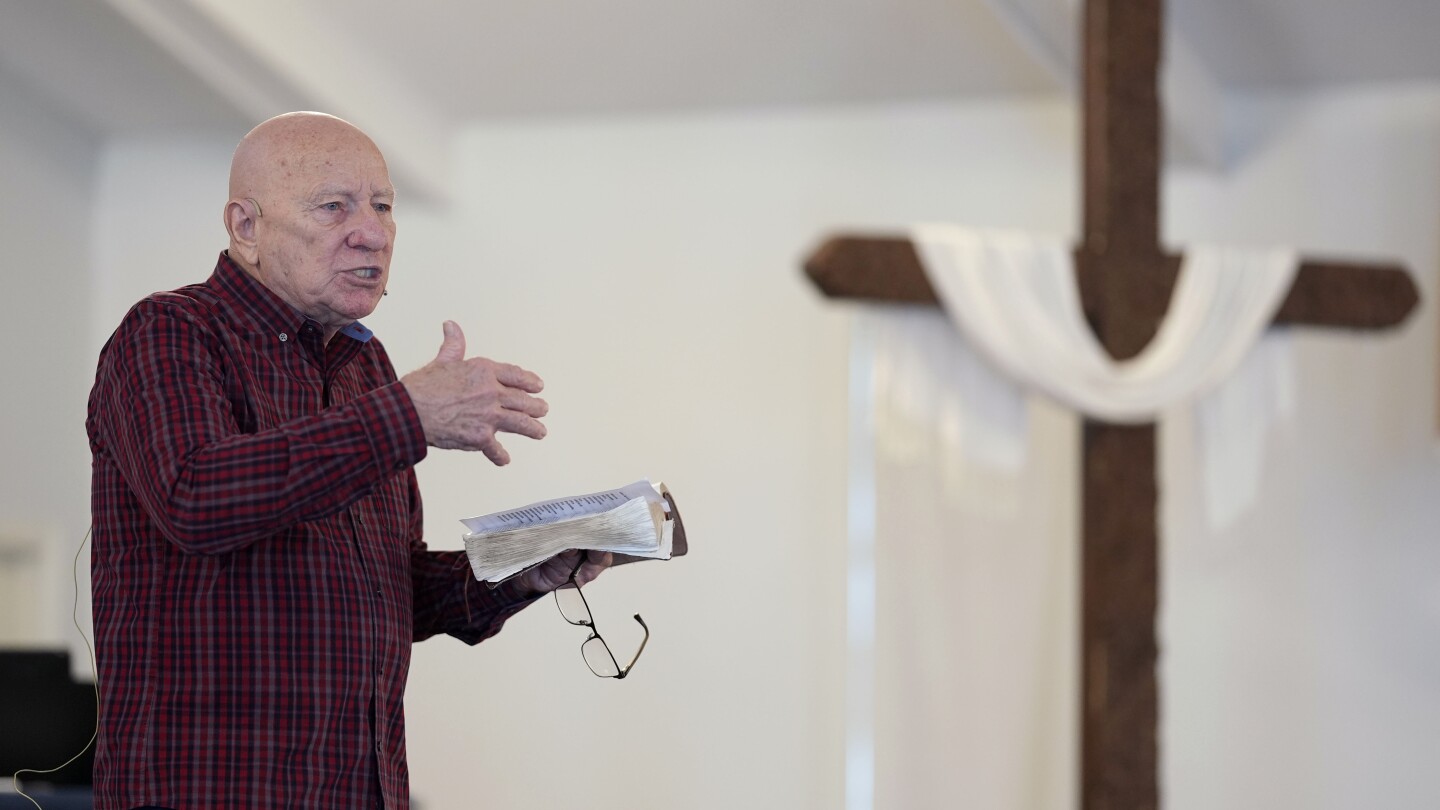“We thank you for the upcoming election, Lord — or caucus, as we call it in Iowa,” said Hundley, speaking from the sanctuary of his evangelical Christian church in his slight Texas drawl as his parishioners bowed their heads.
“It doesn’t matter what our opinion is,” he went on. “It’s really what’s your opinion that matters. But you’ve given us the privilege of being able to exercise a beautiful gift. The gift of vote. We thank you for that.”
While Hundley stops short of suggesting to his parishioners which candidate divine guidance should lead them to support, he is among more than 300 pastors and other faith leaders who’ve been described as supporters by former President Donald Trump’s campaign. It’s a message that some members of Hundley’s First Church of God have taken to heart, saying their faith informs their intention to caucus for Trump.
Ron Betts, a 72-year-old Republican who said he plans to caucus for “Trump all the way,” said he felt the former president “exemplified what Jesus would do.”



I beg to differ, it’s certain he spoke both Hebrew and Aramaic. Additionally, the label of ‘the annointed one’ was given to several false messiahs contemporary to Jesus’s time.
Additionally, romans were already using the sobriquet ‘Little Christs’ to mock his followers before the Crucifixion.
He certainly did not speak Hebrew as it was a dead language ant that point. Aramaic descended from Hebrew and was the spoken language. It’s like saying Italians speak Latin because they’re catholic and their language derives from Latin. We even have him speaking Aramaic on the cross. And if the false messiahs were as provincial as jesus they were illiterate. What is your source for “little Christs”? Edit: and it goes without saying that christos is Greek, and while evangelicals like to say that jbird spoke koine, it’s wishful thinking intended to wave away textual inconsistencies.
deleted by creator
Hebrew did not become a dead language until a century and a half after Jesus’s Crucifixion. It was still the scholarly and prayer language contemporary to his time and as he has been directly titled ‘Rabboni’, an exemplar of ‘Rabbi’ and only used with highly respected priestly scholarship, it is ridiculous to claim he did not speak Hebrew.
The concept of being anointed was near universal in both cultures.
Hebrew: המשׁיה Hamashiach means ‘The anointed one’ and was a title of reverence reserved for the coming Messiah, in fact the word messiah has its root and origin in Hamashiach.
Greek: Χριστός Christos ‘The one (lit) rubbed with oil’, the same root can be found in christen, which is named after the act of daubing the child’s head with oil, known as Chrism also takes its name from the act of applying oil (also known as myrrh)
Before Christianity, Greeks used the root when referring to anointing ceremonies for contest victors and assuming high office, so there was already a connotation with ‘someone special getting oil poured/rubbed onto them’.
Since both cultures had existing concepts for ‘putting oil on someone special’ it was only natural that the sobriquet arise contemporary to the time that he was ALREADY being called Hamashiach. And in fact was part of the reason he was brought before Pilate as claiming to be a king, as his anointing by John the Baptist was almost deliberately misconstrued as a claim for kingship by the Roman occupiers.